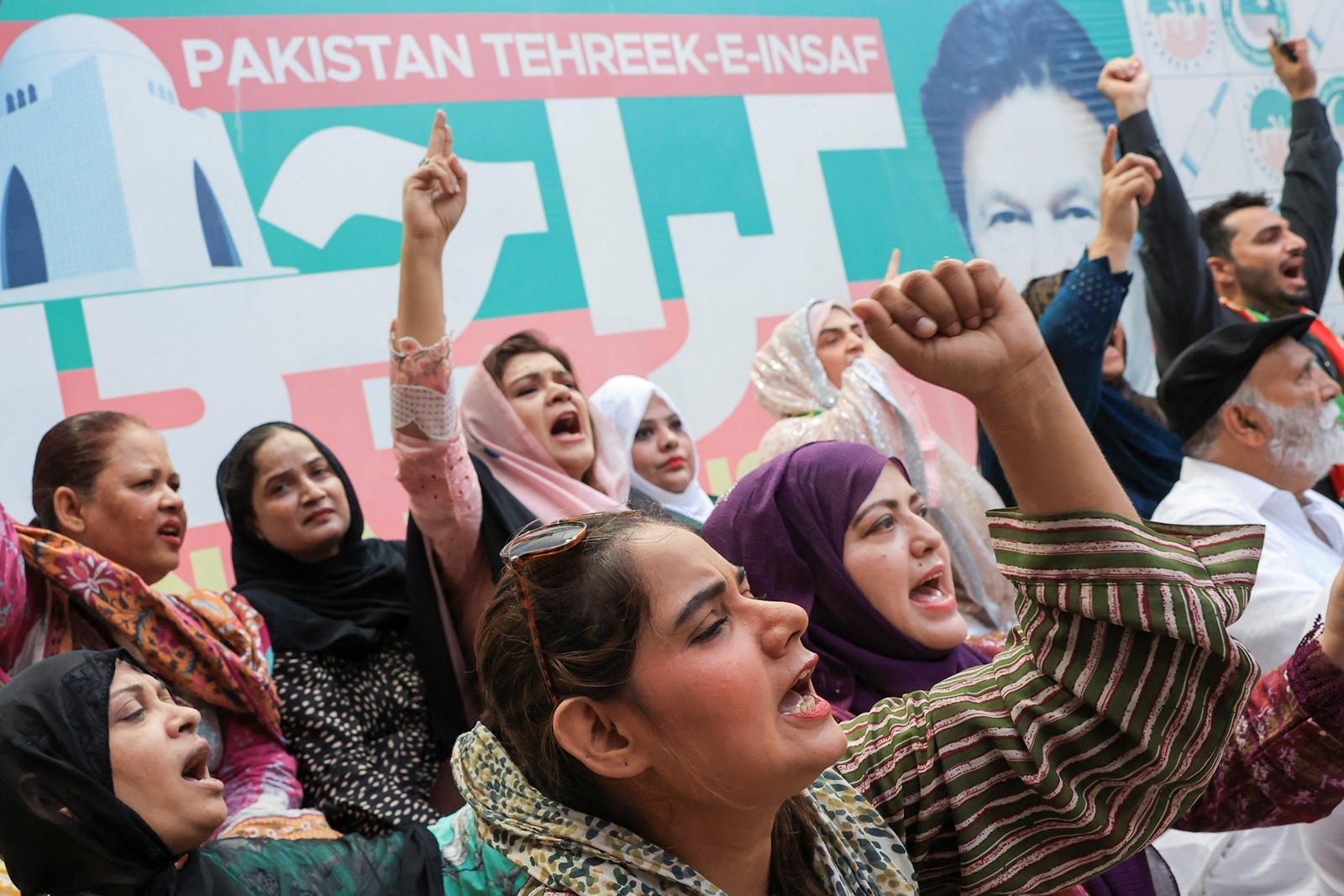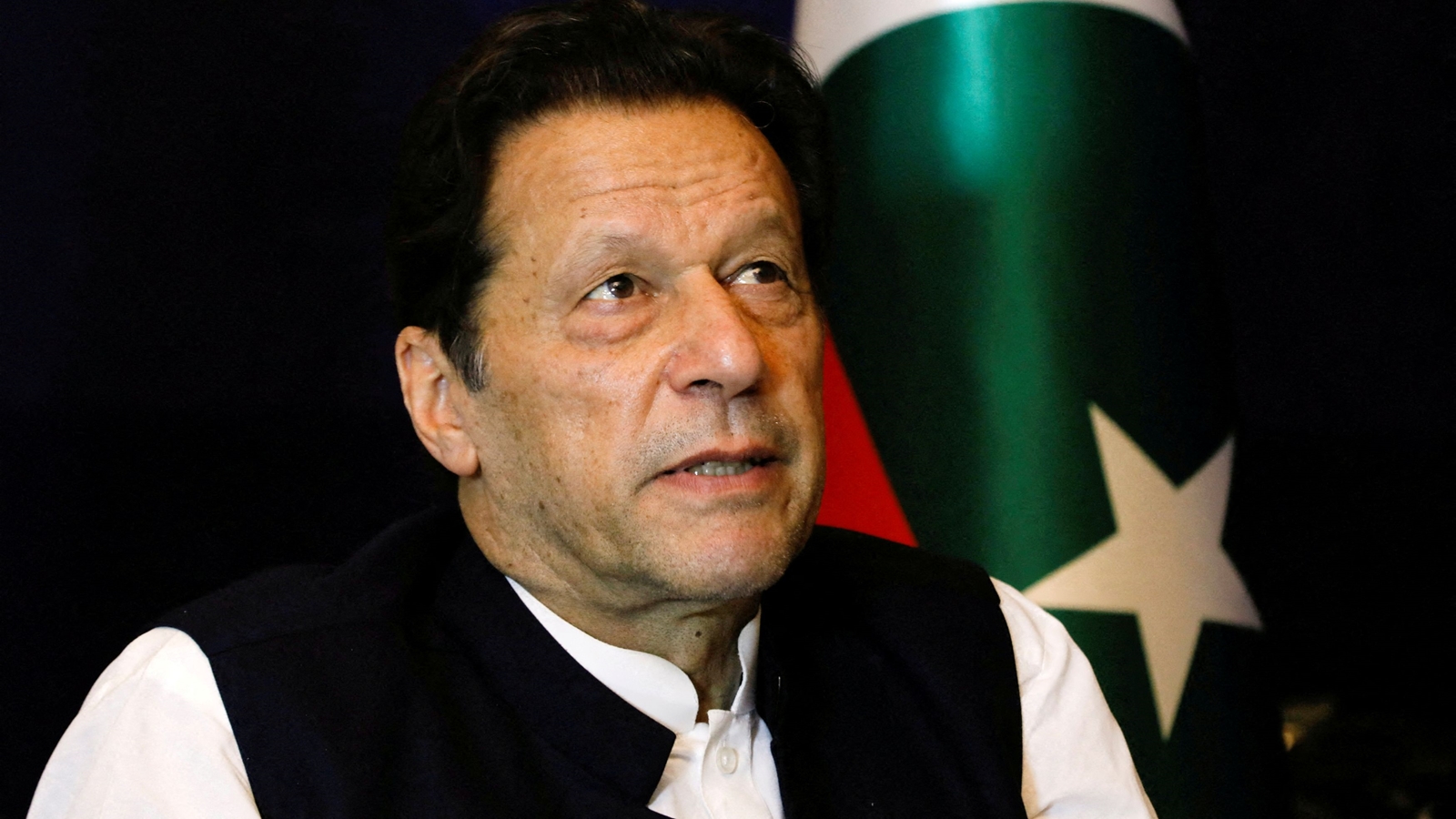In a massive boost to the Pakistan Tehreek-e-Insaf (PTI), the Supreme Court on Friday affirmed its status as a political party and clarified that denial of a party symbol (the bat, in this case) does not amount to disbanding of the party. Reversing the Peshawar High Court judgment, the SC said that the Election Commission had acted “unconstitutionally” in denying reserved seats to the PTI in the National Assembly. This essentially means that all the PTI-backed Independent candidates will now be counted as PTI candidates and the party will be allocated its share of reserved seats for women and minorities — bolstering its numbers in the legislature.
According to News International (July 13), “PTI’s return to parliament disrupts the coalition’s two-thirds majority, which was crucial for constitutional amendments. The coalition, comprising the PML-N and the PPP and others, now faces a more formidable opposition, potentially altering legislative dynamics.”

Express Tribune’s (July 13) stance is evident in the title of its editorial, “Triumph of democracy”. It says, “This judgment has come as a shot in the arm for judicial activism that had been under stress for quite some time… It, however, goes to the resilience of the PTI, and the Sunni Ittehad Council, that they dug their heels in adversity, and triumphed… While the puzzle of future governance will have to await tribunals’ decisions, an inevitable change is on the cards.”
Collective responsibility towards Afghan refugees
Earlier this week, UN High Commissioner for Refugees Filippo Grandi met with Pakistan Prime Minister Shehbaz Sharif. As a result of Grandi’s appeal to PM Sharif, Afghan refugees with the Proof of Registration card have been granted an extension for one year to remain in Pakistan until June 30, 2025. However, PM Sharif called upon the international community to take cognisance of the fact that Pakistan will not be able to bear this burden for much longer and so, all stakeholders must ensure a smooth repatriation of the refugees after.
Express Tribune (July 10) intensifies this demand saying, “It is imperative for the international community, particularly Western countries, to acknowledge their role in shaping these circumstances and to share the responsibility for addressing the humanitarian crisis that has ensued.”
Dawn (July 12) outlines the Taliban’s responsibility to ensure safe conditions for the Afghan refugees. The editorial believes, “The Taliban, on their part, should create a climate conducive to the return of their compatriots. This entails shunning retribution, and assuring all returnees that their fundamental rights will be respected.”
Challenges for new Iran president
In the wake of Iran’s former president Ebrahim Raisi’s death last month, the country held a re-election. On July 5, in the run-off polls, reformist Masoud Pezeshkian was voted in as the country’s president, defeating conservative candidate Saeed Jalili. The media discusses the challenges, both internal and external, that lie ahead for President Pezeshkian.
The Nation (July 7) is hopeful because “a moderate President could mean some internal reforms and a more dialogue-oriented approach toward the US, contingent on the diminishing role of the Supreme Leader.” But in terms of diplomacy, it believes, “Pezeshkian’s influence on foreign policy will be limited.”
Dawn (July 7) lays out the internal dynamic that the new president will need to consider: “Domestically, the Iranian electorate has signalled that the system must change, in line with its wishes. Therefore, Pezeshkian will have to carefully navigate between the expectations of his voters and the demands of the clerical establishment. Along with social freedoms, the greatest domestic challenge before the new Iranian leader will be to improve his country’s stagnant economy.”
The population explosion
July 11 is celebrated as World Population Day globally. In this regard, Pakistan’s media reflects on the country’s challenges of a rising population with the ongoing economic crisis and lack of a family planning programme to check population growth.
News International (July 12) discusses resource allocation, better quality of healthcare and financial empowerment to reduce ignorance around the subject. It says, “Poverty often correlates with higher birth rates as families may view children as additional hands to contribute to household income. Microfinance programmes and skill development initiatives can empower communities, fostering economic independence and consequently influencing family planning decisions.”
Dawn (July 11) suggests looking outside for solutions towards Turkey, Iran and Bangladesh that are “Muslim-majority states… with which we share many cultural similarities.” The editorial believes “these countries succeeded because the state was fully supporting policies aimed at reducing population growth… There is no reason why Pakistan… cannot learn from these Muslim states.”
adya.goyal@expressindia.com



